Bong! Big Ben's Back In Britain
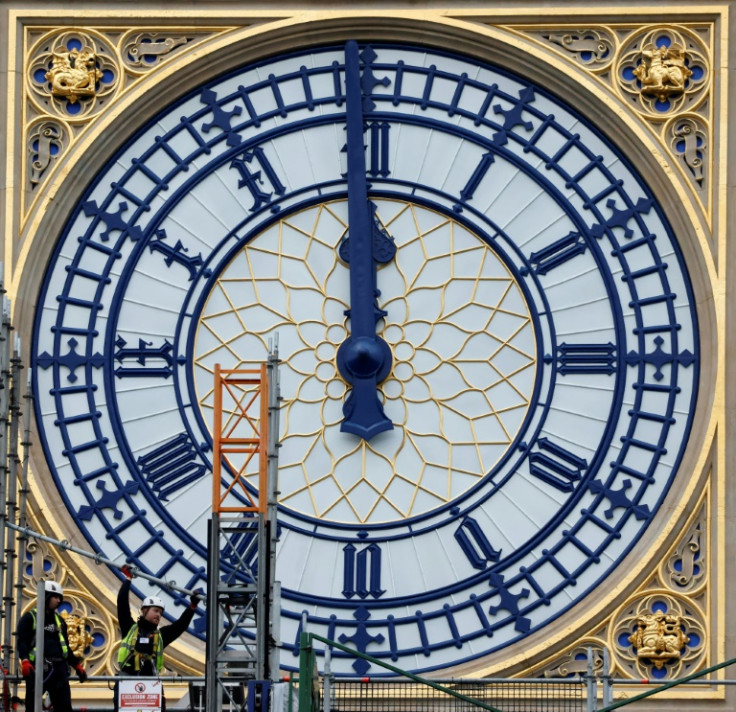
Getting up close to Big Ben requires earplugs, and ear defenders over them to be safe. When the 13.7-tonne bell sounds, the vibration hits you in the chest.
After a five-year restoration project, the world-famous ringer is back with a bong.
The Great Clock towering above Britain's Houses of Parliament is resuming daily operations following the painstaking renovation of more than 1,000 moving parts.
When the clock's five cast-iron bells including Big Ben fell silent in 2017, a mournful crowd of parliamentarians and staff gathered below. Some shed tears.
But after a week of testing, normal service will resume every 15 minutes from 11:00 am (1100 GMT) on Sunday.
The time marks the moment on November 11, 1918 when the guns fell silent in World War I. In Britain, Remembrance Sunday immediately follows Armistice Day every November 11.
They are two of the few occasions that Big Ben and his partners have rung since 2017, along with New Year's Eve, when Britain left the European Union in 2021, and the funeral of Queen Elizabeth II in September.
Atop the 96-metre (315-foot) Elizabeth Tower is the belfry housing the bells -- protected by exterior netting to keep out bats and pigeons.
Beyond lie some of London's most spectacular vistas.
But parliament's three in-house timekeepers don't have time to enjoy the view.
Ian Westworth, 60, and his colleagues have been busy overseeing the tests to ensure everything is in order after the ?80-million ($90-million) restoration.
"It's the sound of London back again," Westworth told AFP on a dawn tour of the tower.
"The bell's sounded through wars, and you try and imagine what this bell's actually seen -- 160 years of development."
The Elizabeth Tower, previously called the Clock Tower, was renamed in 2012 to honour the late queen's Diamond Jubilee.
When first built in the 1840s, it dominated the Westminster skyline. Today, newer and taller buildings lie nearby.
"You used to be able to hear this (Big Ben) on a quiet night up to 15 miles (24 kilometres) away," Westworth said, as a chill wind whistled through the belfry.
"Now you're lucky on a day like today if you can hear it the other side of Parliament Square."
The five-year restoration involved cleaning and repainting each of the five bells' hammers and arms. The bells themselves stayed in place.
Big Ben sounds the hour, and is so large that flooring in the tower beneath would have to be dismantled if it ever had to be removed.
The four smaller bells around it sound the quarter-hour.
The biggest job was taking apart the 11.5-tonne clock mechanism dating from 1859 so that every cog and pinion could be cleaned, repaired and re-oiled by a specialist company in Cumbria, northwest England.
Other changes were cosmetic.
Twenty-eight round LED lights now illuminate the four clock faces, a balance of green and white offering the closest match to how they would have looked in gas-lit Victorian times.
Above the bells sits a taller LED light, which glows white when parliament is sitting.
State-of-the-art sprinklers have been installed throughout the tower, although the belfry is beyond reach of the system.
In past years before the renovation, parliament's timekeepers would benchmark the Great Clock's time against the telephone speaking clock.
Now, it is calibrated by GPS via Britain's National Physical Laboratory.
But the method to adjust the clock's timing mechanism remains old-fashioned: pre-decimal pennies are added or removed from weights attached to two giant coiled springs, to make or lose a second.
As the top of the hour approaches, it is time to don the ear defenders again for the continuing series of tests.
Big Ben bongs seven times, setting off a bass vibrato in the gantry around it.
While deafening, the unmistakeable peal of the cracked bell is also a reassuring note of constancy after a year of political upheaval in Britain, and as the rest of the parliamentary estate frays.
Political bickering over the costs is holding up a bigger renovation of the ageing complex.
But Westworth and his 35-year-old colleague Alex Jeffrey remain focused on the job in hand: tending to parliament's 2,000 clocks, many of them irreplaceable antiques.
"Every day you're keeping time in a very hands-on way, using technology, arts and crafts," Jeffrey said.
"It's very tactile, as is maintaining the Great Clock," he added. "It's the best job in the world."
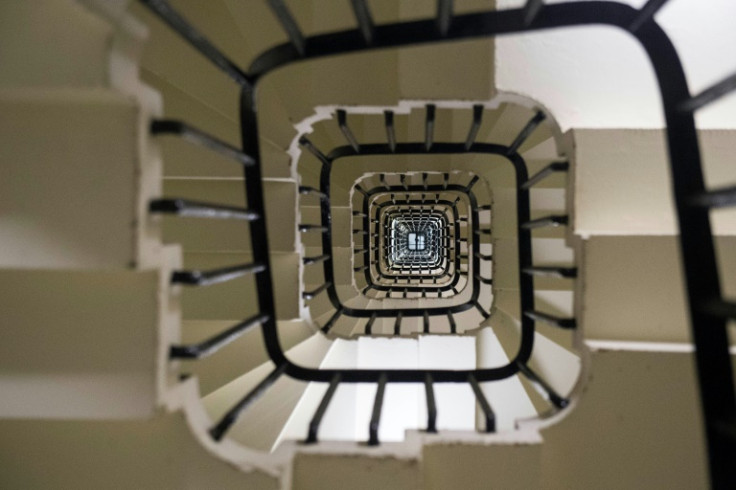
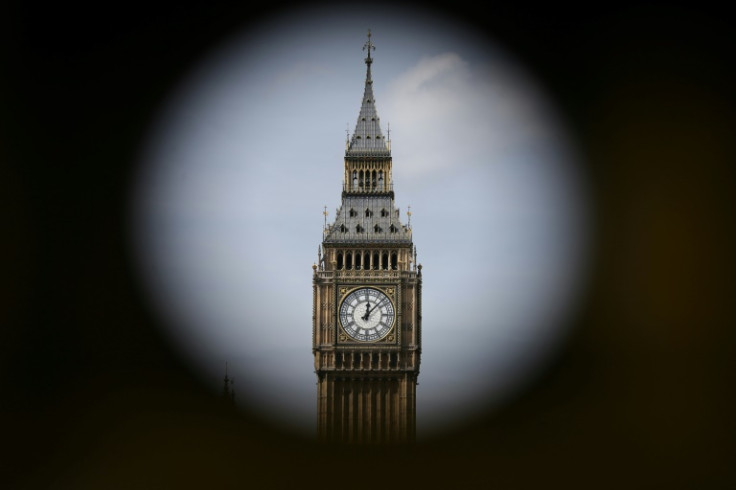
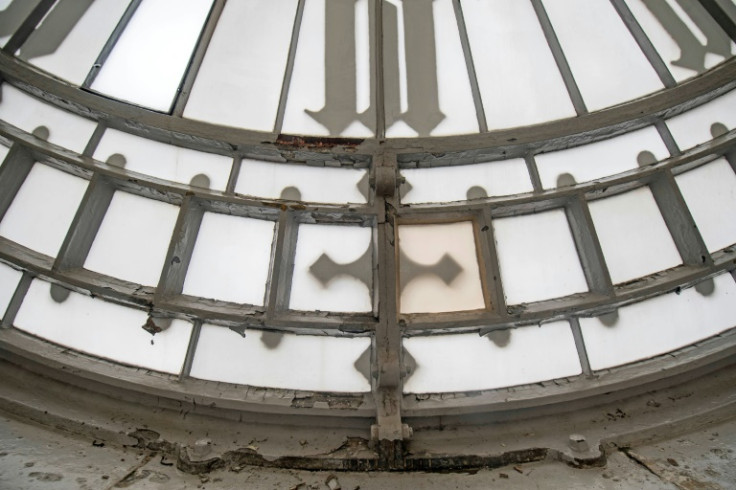
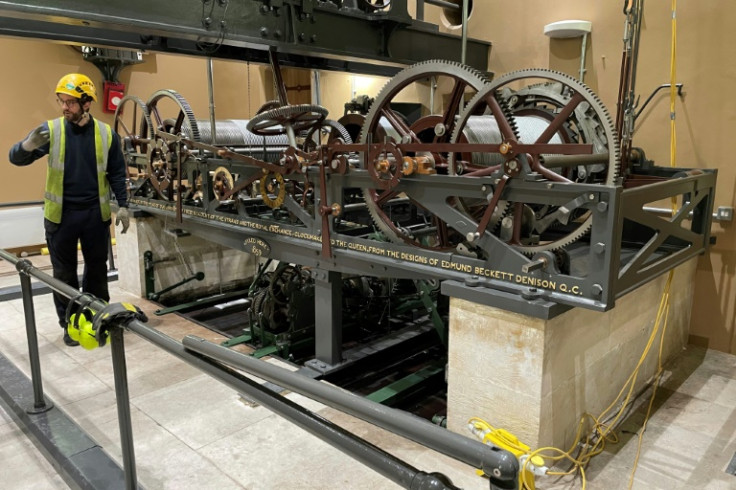
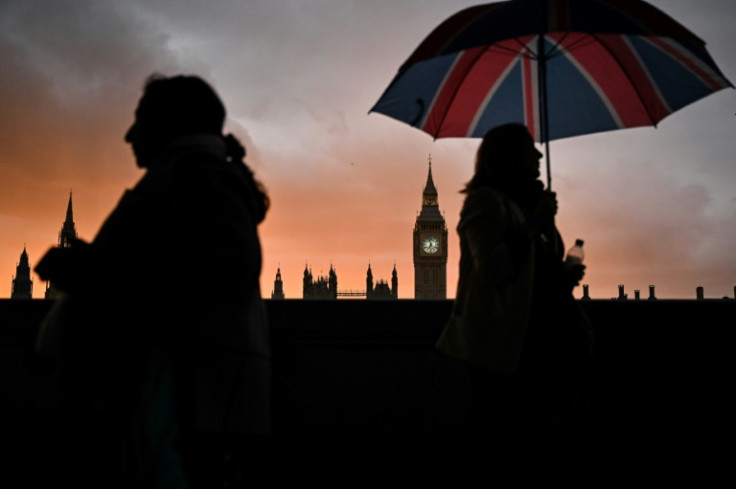
© Copyright AFP 2024. All rights reserved.





















